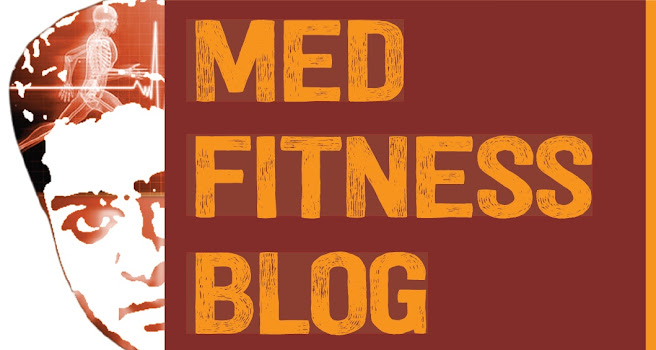Iron deficiency anemia is the world's most common nutritional
deficiency disease and is most prevalent among children and women of
childbearing age. Anemia develops due to an inadequate amount of iron in
the diet or poor iron absorption.
Iron deficiencies can be caused or exacerbated by injury, blood loss,
hemorrhage or gastrointestinal diseases that impair iron absorption.
Inadequate intake of folate, protein and vitamin C can also contribute to iron deficiency.
MNT Knowledge Center feature is part of a collection of articles on the
health benefits of popular vitamins and minerals. It provides an
in-depth look at recommended intake of iron, its possible health
benefits, foods high in iron and any potential health risks of consuming
iron.
Recommended intake
The Recommended Daily Allowance (RDA) for iron depends on age and gender.
Inadequate intake of folate, protein and vitamin C can contribute to iron deficiency.
Children:
- 1-3 years - 7 milligrams
- 4-8 years - 10 milligrams.
Males:
- 9-13 years - 8 milligrams
- 14-18 years - 11 milligrams
- 19 years and older - 8 milligrams.
Females:
- 9-13 years - 8 milligrams
- 14-18 years - 15 milligrams
- 19-50 years - 18 milligrams
- 51 years and older - 8 milligrams.
Pregnancy:
- 27 milligrams.
An estimated 8 million women of childbearing age in the US suffer from iron deficiency severe enough to cause anemia. Iron deficiency during pregnancy may raise the risk for preterm delivery.
Iron supplements are available, but it is best to obtain any vitamin or
mineral through food first. It is not the individual vitamin or mineral
alone that make certain foods an important part of our diet, but the
synergy of the foods nutrients working together. It has been proven time
and again that isolating certain nutrients in supplement form will not
provide the same health benefits as consuming the nutrient from a whole
food. First focus on obtaining your daily iron requirement from foods
then use supplements as a backup.
Possible health benefits of consuming iron
Iron deficiency can cause many health problems. Common difficulties
associated include delayed cognitive function, poor exercise performance
and lowered immune function. In children, iron deficiency anemia can
cause psychomotor and cognitive abnormalities resulting in future
learning difficulties.
Healthy pregnancy
Low iron intakes increase a woman's risk of premature birth and the risk
of her infant having low birth weight, low iron stores and impaired
cognitive or behavioral development.
More energy
Not getting enough iron in your diet can affect how efficiently your
body uses energy. Iron carries oxygen to the muscles and brain and is
crucial for both mental and physical performance. Low iron levels may
result in a lack of focus, and an increase in irritability.
Better athletic performance
Iron deficiency is more common among athletes, especially young female
athletes, than sedentary individuals. Iron deficiency in athletes
decreases athletic performance and weakens immune systems. A lack in
hemoglobin iron can greatly reduce physical work performance via a
decrease in oxygen transport to exercising muscle.
Foods high in iron
Iron has a low bioavailability, meaning that it has poor absorption
within the small intestine and low retention in the body, decreasing its
availability for use. The efficiency of absorption depends on the
source of iron, foods consumed with the iron, and overall iron status of
the person. In many countries, wheat products and infant formulas are
fortified with iron.
There are two types of dietary iron - heme and non-heme. Most animal
products and seafood contain heme iron, which is easier to absorb than
non-heme. Non-heme iron sources include beans, nuts, vegetables and
fortified grains. The recommended iron intake for vegetarians is 1.8
times higher than for those who eat meat in order to make up for the
lower absorption level from plant-based foods.
Proton pump inhibitors (lansoprazole [Prevacid®] and omeprazole
[Prilosec®]) used to reduce the acidity of stomach contents can inhibit
the absorption of iron. The polyphenols and tannins in coffee
and tea also decrease non-heme iron absorption. Eating foods that are
high in vitamin C, on the other hand, help to increase iron absorption.
Clams contain a significant 24 mg of iron per 3 oz.
- Clams, canned, 3 oz: 24 milligrams
- Cereal, fortified, one serving: 1-22 milligrams
- White beans, canned, 1 cup: 8 milligrams
- Chocolate, dark, 45-69% cacao, 3 oz: 7 milligrams
- Oysters, cooked, 3 oz: 6 milligrams
- Spinach, cooked, 1 cup: 6 milligrams
- Beef liver, 3 oz: 5 milligrams
- Blueberries, frozen, ½ cup: 5 milligrams
- Lentils, boiled and drained, ½ cup: 3 milligrams
- Tofu, firm, ½ cup: 3 milligrams
- Chickpeas, boiled and drained, ½ cup: 2 milligrams
- Tomatoes, canned, stewed, ½ cup: 2 milligrams
- Ground beef, lean, 3 oz: 2 milligrams
- Potato, baked, medium: 2 milligrams
- Cashew nuts, roasted, 1 oz: 2 milligrams
- Egg, 1 large: 1 milligram.1,2
Potential health risks of consuming iron
The tolerable upper intake level for iron is between 40-45 milligrams.
Adults with healthy functioning gastrointestinal systems have a very low
risk of iron overload from dietary sources.
Taking iron supplements of 20 milligrams or more on a frequent
basis can cause nausea, vomiting and stomach pain, especially if the
supplement is not taken with food. In severe cases, iron overdoses can
lead to organ failure, coma, seizure, and even death.
Some studies have suggested that excessive iron intake can increase the risk of coronary heart disease and cancer.
Iron supplements can interact with several medications, including levodopa (used to treat restless leg syndrome and Parkinson's) and levothyroxine (used to treat hypothyroidism, goiter, and thyroid cancer).
It is the total diet or overall eating pattern that is most important in
disease prevention and achieving good health. It is better to eat a
diet with a variety than to concentrate on individual nutrients as the
key to good health.


No comments:
Post a Comment